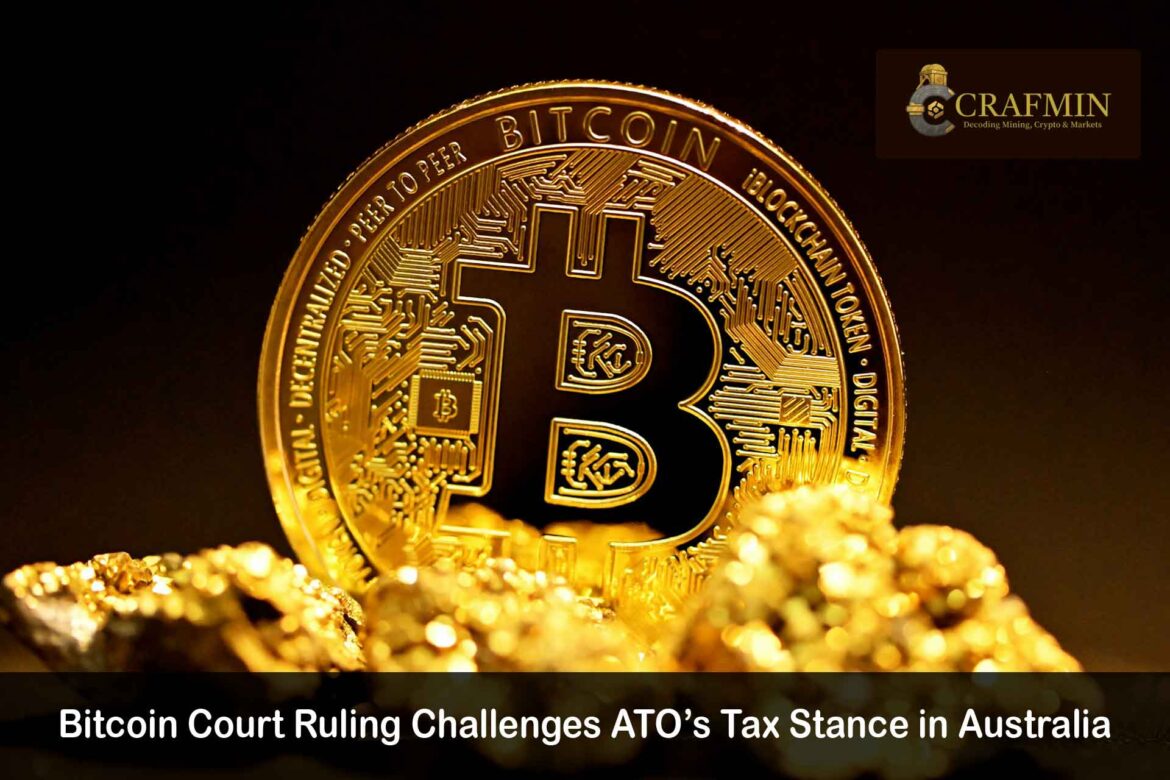Tax Experts Warn Australians to Be Cautious After Bitcoin Court Ruling
A new court decision in Victoria is shaking up how Australia might treat Bitcoin for tax purposes, as a magistrate recently ruled that Bitcoin should be seen more like money than an investment asset.
This decision goes against the Australian Taxation Office’s (ATO) long-standing position and has raised hopes for major tax changes.

Image 1: Aussie flag with Bitcoin logo (Source: Crypto News Australia)
Bitcoin Ruling Challenges ATO’s View
Since 2014, the ATO has treated Bitcoin as a capital gains tax (CGT) asset. That means if someone bought Bitcoin and later sold it for a profit—or even swapped it or gave it away—they would need to pay tax on any gains. The recent court case, however, took a different view. The magistrate ruled that Bitcoin behaves more like regular currency, similar to Australian dollars, rather than something like gold or shares.
If that view becomes the legal standard, then selling or using Bitcoin might no longer attract capital gains tax. In simple terms, this would mean many Australians could avoid paying tax on everyday Bitcoin transactions.
Possible Tax Refunds and a New Crypto Landscape
The ruling has stirred excitement in the crypto community. If higher courts agree with the magistrate, thousands of Australians could be eligible for tax refunds. Some estimates suggest this could amount to as much as AU\$1 billion in total.
Beyond refunds, this change could also put Australia in a stronger position as a global crypto hub. If Bitcoin is no longer taxed as an asset, it would remove a major barrier for people and businesses who use or invest in crypto. This could lead to more activity in the space, attracting investors, startups, and developers to the country.
Experts Say: Don’t Rush
Despite the buzz, tax and legal experts are urging people not to make any changes just yet. Although the magistrate’s decision is important, it does not overturn existing tax laws or ATO guidance. The ATO has made no changes to its rules and still expects Australians to report capital gains from Bitcoin.
Dr Lizzie Morton, a senior lecturer at Curtin Law School, said the ATO has maintained the same position since 2014 and is unlikely to change its mind immediately. She explained that even though a court has ruled differently, that doesn’t mean the law has officially changed. The current rules still apply, and the ATO will continue to enforce them unless a higher court orders otherwise.
The Ruling Isn’t Final
This court decision is not the end of the road. It’s likely to be reviewed by the Court of Appeal and possibly even the Federal or High Court. Only after those courts weigh in can the ruling be confirmed and applied more broadly.
Geoff Rooney, a partner at BDO in Sydney, expects that the case will move through the legal system in the coming months. These appeals will be important for determining whether Bitcoin will officially be treated as money under Australian tax law.
Until then, the current laws remain in effect. Anyone selling or using Bitcoin must continue to follow the ATO’s guidelines. That includes reporting gains or losses on tax returns and keeping proper records of every crypto transaction.

Image 2: Bitcoin (Source: Investing News Network)
Big Changes If Ruling Stands
If the ruling is upheld by higher courts, the impact could be significant. Not only would it mean refunds for past CGT paid on Bitcoin, but it could also simplify tax rules going forward. For example, buying coffee with Bitcoin or swapping it for another cryptocurrency might no longer come with a tax bill.
Byron Goldberg, a venture capitalist at Backbone Partners, said such a change could make Australia more attractive for crypto adoption. Without CGT, crypto would become easier to use in daily life and less complicated for businesses and developers.
Stay Cautious and Get Professional Advice
Experts agree that while the ruling is exciting, it’s still too early to take action. The best approach right now is to be cautious. Taxpayers should not expect refunds or change how they report Bitcoin until the ATO officially updates its guidance or a higher court confirms the ruling.
Legal changes take time, especially when they involve tax law. Even if the case goes all the way to the High Court and succeeds, it could be months before anything changes. Until then, the safest option is to stick with the current rules.

